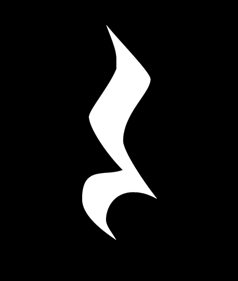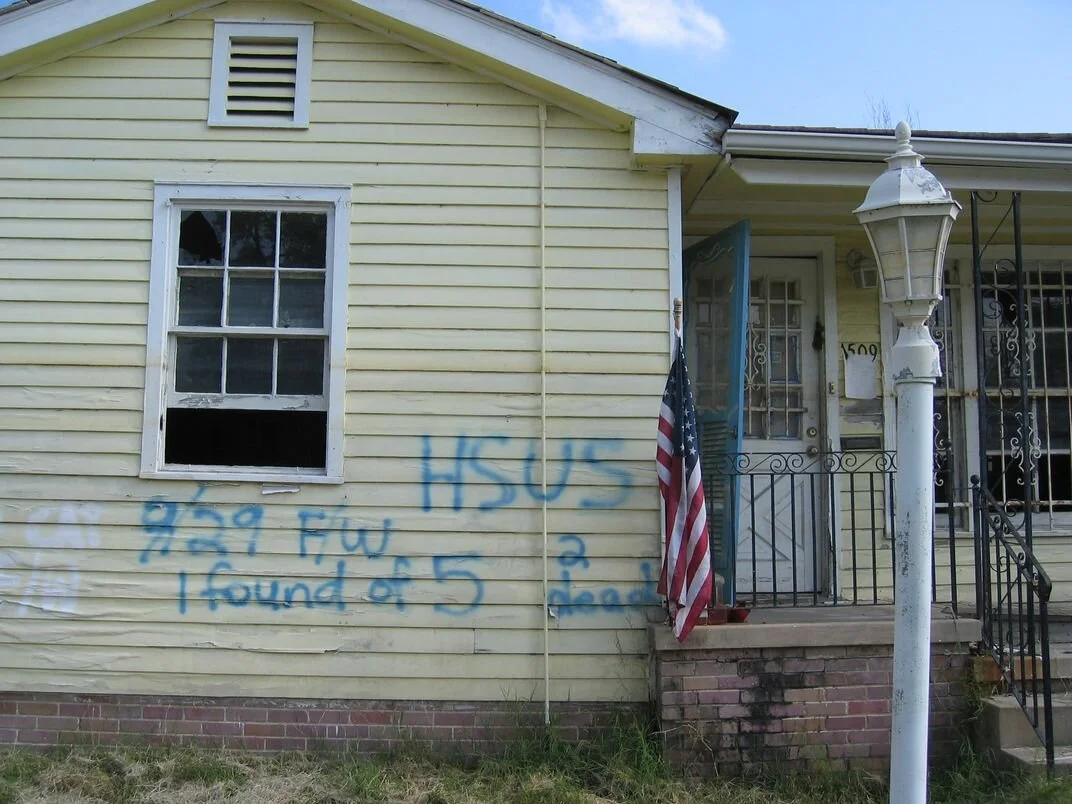The Silence After a Storm
John Biguenet
“A month after the flood.” photo credit: John Biguenet.
It’s silence the thing everyone remembers, the thing come up most you ask about the aftermath of the flood. You start off, “How’d you make out, y’all do all right?” First thing they say, the ones rode out the storm, the ones trapped on their roofs three, four days after the levees collapsed, waiting for the United States to arrive don’t come till the end of the week, first thing they tell you, “It was silent, man. Silent like you never heard before.”
Sure, they concede you press them, there was the sloshing of the water now and then against the roof, most likely ripples from the wake of some warm breeze come up or maybe some old tree toppled over, its roots eat out by the saltwater rushing in and then just sitting there, not going anywhere anytime soon. And, yeah, after a day or two, maybe not even that long, the dogs left behind in houses got water up to the second floor, those dogs started in with this pitiful whining for food, a bowl of water, just let them outside, something. The worst, though, was some neighborhoods, the ones with the money to wire up their houses with security systems, their alarms started beeping after maybe twenty-four hours without electricity—some kind of warning to the people weren’t there anymore to check the battery—and then the next day those alarms started pulsing out what sounded like a burst of screams, over and over again, a bunch of men screaming, that’s what it sounded like. That went on for a good long time till they finally died and shut the hell up, the security systems.
When you stop them and ask what’s any of that got to do with silence, that’s noise you talking about, they say, that’s the whole point, man. The only reason we could even hear them, those alarms, halfway across town where we lived was just how damn silent everything was.
And it’s kind of logical, you think about it, the silence. No birds, not for a long time afterward. Battered to death, fled before the wind, who knows? But no birdsong till winter at least, and this was still August we talking about. No babies, neither, crying for their mother’s tit the middle of the night. Nor children shrieking—hurt, happy—you never can tell what they’re yelling for, other people’s kids. Nobody left their little ones behind, of course, the way they did their dogs, cats. So you got no birds, no children to make noise. Old people trapped in their attics and can’t find a way out, you heard them banging the inside of their roofs the first day or so once the sun come up, but that didn’t last till Wednesday, Thursday morning before they stop bothering, the ones hadn’t die by then. Thing is, the reason we all got ventilator fans up there, an attic’s maybe 130 degrees the time you get to August you live down here. You got a thermostat set to 120, those fans run all day and most the night. And September’s no better, not the first few weeks, anyway. So by Thursday, you don’t hear much of anything coming from those attics anymore.
But, look, the point is, they explain, how long’s it been since New Orleans was that quiet, that dark at night? You can’t imagine how many stars they had over the city that week. Man, they say, you ain’t never seen nothing like it, that many stars packed into just one sky.
They talk like the one’s got to do with the other, the silence and the darkness. And it’s true, nobody talks about the one without the other. Like there were things you couldn’t see before with all the light, things you couldn’t hear for all the noise.
So silence is half what you ought to hear, you don’t. The other half? What you hear, you shouldn’t. And if there was anything in between, another kind of silence, the kind where you say a prayer and the only answer you get is the sloshing of the water against your roof, well, nobody talks about that. And if you’re looking for the silence after a storm, I were you, that’s where I’d begin.
John Biguenet has published ten books and had six plays widely produced. The winner of an O. Henry Award for short fiction and past president of the American Literary Translators Association, he teaches at Loyola University in New Orleans. @JohnBiguenet


